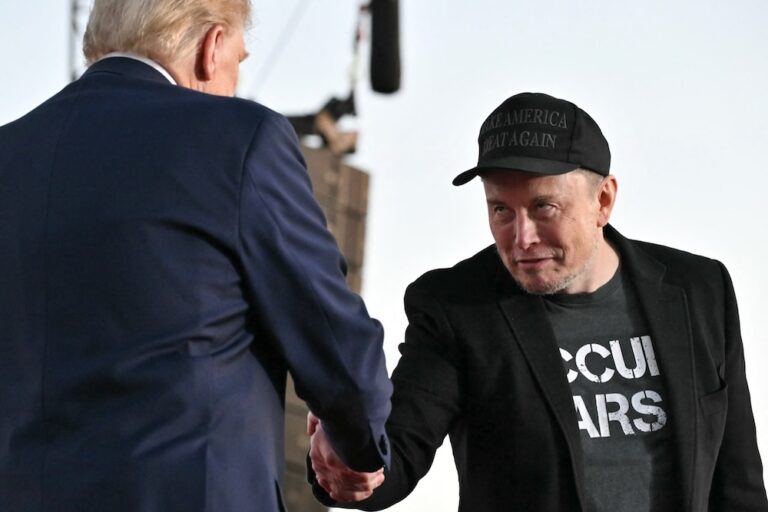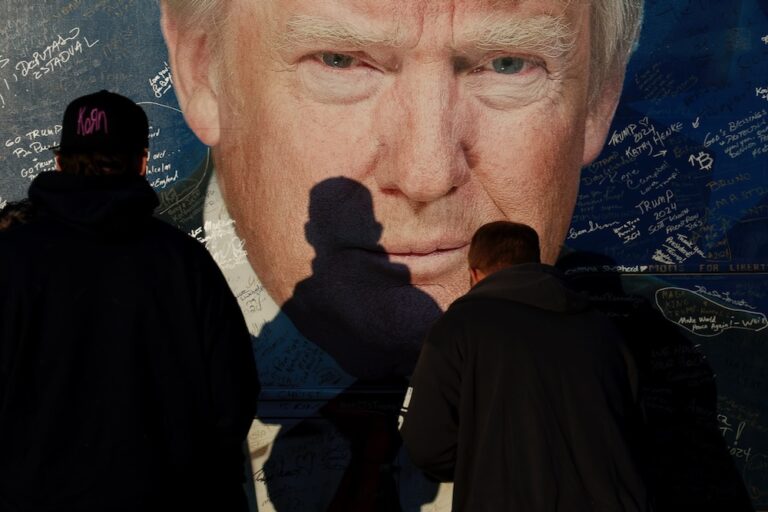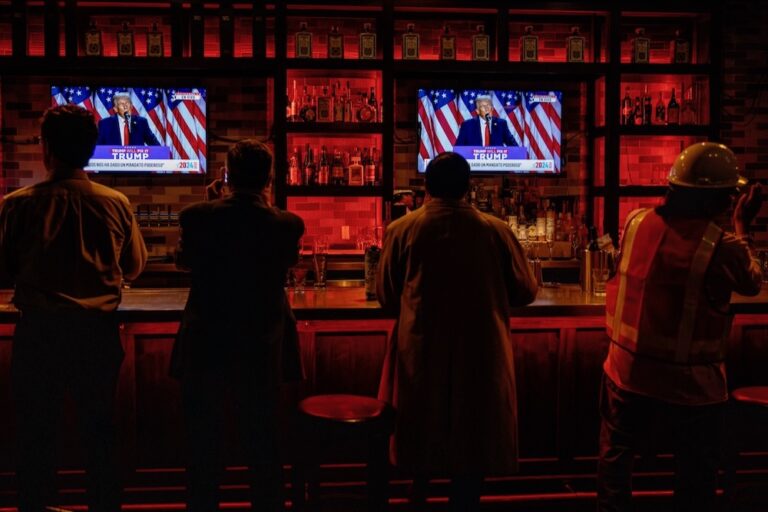(RSF/IFEX) – On 20 May 2003, RSF protested against the detention of six French journalists upon their arrival, a week ago, at Los Angeles international airport. The journalists had travelled to the United States (U.S.) to cover a video game trade show. They were forcibly repatriated after being held at the airport for over 24 […]
(RSF/IFEX) – On 20 May 2003, RSF protested against the detention of six French journalists upon their arrival, a week ago, at Los Angeles international airport. The journalists had travelled to the United States (U.S.) to cover a video game trade show. They were forcibly repatriated after being held at the airport for over 24 hours.
“These journalists were treated like criminals – subjected to several body searches, handcuffed, locked up and fingerprinted,” RSF Secretary-General Robert Ménard complained in a letter to the U.S. ambassador to France, Howard Leach.
Ménard urged the ambassador to press for an investigation and to ensure that the journalists will not encounter any further difficulties the next time they travel to the U.S.. He also asked for clarification as to whether or not journalists travelling to the U.S. require a specific press visa. “As things stand, the decisions taken by airport security officials appear to have been arbitrary, if not discriminatory,” Ménard said in his letter.
The six journalists arrived at Los Angeles airport in two groups, a day apart. The first group consisted of Alexandre Alfonsi, of the weekly “Télé 7 Jours”, Stéphanie Pic, of the weekly “Télé Poche”, and Michel Perrot, of the weekly “TV Hebdo”. They arrived on 10 May, at 2:00 p.m. (local time), without press visas. Pic and Perrot passed through immigration without incident, but Alfonsi was denied access to U.S. territory on the grounds that he lacked the required visa.
Pic and Perrot tried in vain to find out from airport officials what had happened to their colleague. All three journalists were then detained and held for a total of 26 hours, which included a night in the cells of a U.S. Immigration detention centre.
The journalists were subjected to several interrogation sessions and six body searches. They were handcuffed while being moved from one place to another, and were also fingerprinted. One official told Alfonsi he would no longer be able to travel to the U.S.. The journalists were put on a flight to France at around 4:00 p.m. the next day, and were not able to recover their passports until the airplane made a stopover in Amsterdam.
The other group of journalists, which suffered an almost identical fate, consisted of Thierry Falcoz, editor-in-chief of Game One cable television, and two of his cameramen, Laurent Patureau and Alex Gorsky. They arrived at Los Angeles international airport on 11 May, at around 3:00 p.m.. Falcoz and Gorsky passed through immigration without incident but Patureau was stopped by an official who said he needed a press visa.
When Patureau’s two colleagues protested, all three were detained. After being held for nine hours in an airport waiting room, they were taken to a U.S. Immigration detention centre, where they were held overnight in a cell. They were subjected to repeated body searches and interrogation. The journalists were handcuffed when taken from one location to another, and they were fingerprinted as well. Finally, they were put on a flight back to France at around 6:00 p.m. the next day.


